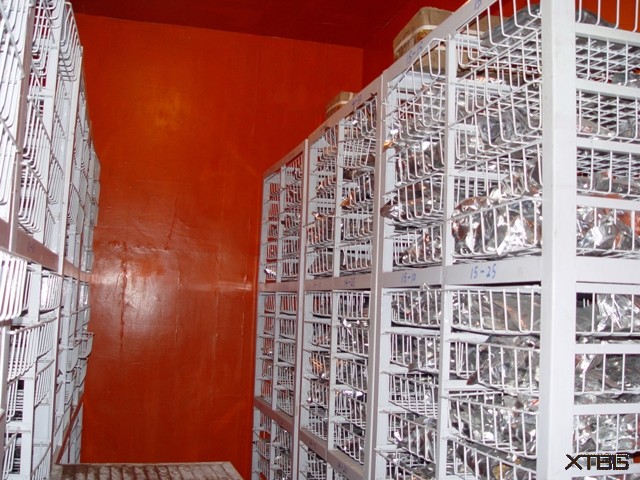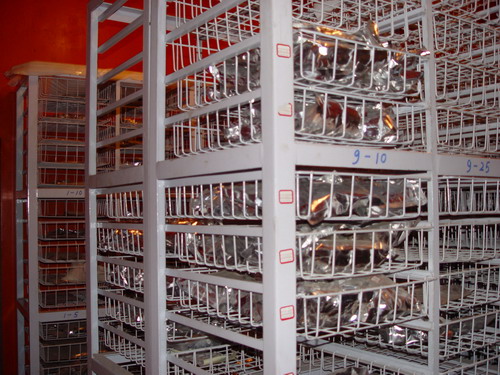The Tropical Plant Germplasm Bank (TPGB) of XTBG, formerly Rare, Endangered and Endemic Plant Germplasm Bank (REEP) is a member of the Wild Biological Resource Banks of the Chinese Academy of Sciences. As one of the major wild plant germplasm banks in China, the TPGB is engaged mainly in collection, storage, evaluation and distribution of tropical and subtropical plant germplasm, including both seeds and plant tissue cultures; meanwhile the TPGB aims at development of conservation theory and method for plant germplasm, construction of research and experiment platform on seed biology, and training of professionals in seed science.
Established in 1997, the TPGB has a storage area of 144 m2 and a capacity of 150,000 accessions, which can provide standardized conditions for the conservation of plant germplasm. It was designed and built up according to international seed bank standards recommended by International Board for Plant Genetic Resources, with a standardized drying room, two seed storage rooms set at -18ºC for long-term seed storage and 4ºC for mid-term seed storage respectively, in addition to a storage room at 15ºC for in-vitro culture storage.
The TPGB is a seed bank characterized by storage of tropical plant germplasm, which takes the tropical plant species in Xishuangbanna and nearby area as its focal point. Seed storage on the purpose for ex situ conservation of plant germplasm is the TPGB’s primary mission. By the end of 2012, plant germplasm that the TPGB collected has reached 7757 accessions from 1227 species, 412 genera, 116 families, accounting for about 10% of the total tropical and subtropical plants species in China, with 1151 unidentified taxon excluded.
The TPGB takes seed science research as another mission of its own. Attached to the storage rooms, there is a seed biology laboratory with an area of 300 m2. Besides everyday water content and seed viability determination, most seed biological experiments also can be carried out here, including microscopy and super-microscopy, physiological and biochemical analysis, enzyme activity assessment, proteomics research, gene clone and function evaluation. It is also equipped with cryobiology instruments and aseptic facility, so that in-vitro culture and sterile operation can be performed.
Over the past few years, the TPGB has made great progress in seed science research, with many academic papers published in peer-reviewed journals.
The TPGB and its laboratory are open to all seed scientists. We have wide interests in all aspects of seed science though our present work focusing on seed storage physiology and biochemistry, mechanism of seed recalcitrance, desiccation tolerance in plants, physiology and ecology of recalcitrant seeds. Experts all over the World are welcome to take joint research with us. The rich seed resources in Xishuangbanna make the TPGB a wonderful place for seed science research.
For more information, please contact Dr. WEN Bin (wenb@xtbg.org.cn)




